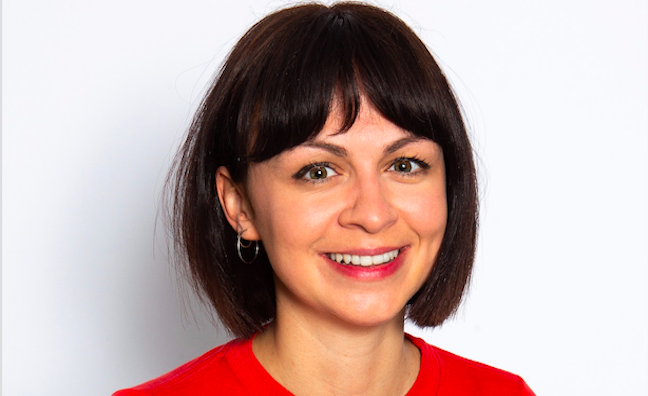NME editor Charlotte Gunn has told Music Week that the title is “bringing back its big mouth” as time ticks on towards the first anniversary of its print closure.
NME shut down in print in March 2018, shortly after former editor Mike Williams left his post. Gunn was speaking to Music Week for an in-depth interview in our recent year-end special issue.
Reflecting on the months after NME’s print closure, Gunn said: “It was definitely tough: not least because we lost colleagues but also because the magazine meant a lot to everyone that worked there. We all grew up reading it. We all wanted to see it succeed.”
Gunn added: “It was hard to feel like we hadn’t made it work and to deal with everyone weighing on why it folded, when really it was a business decision. The magazine wasn’t profitable but the website was and is.”
NME recently ran an interview with Yoko Ono, while The 1975, Slowthai and Wolf Alice have also featured in the website’s ‘Big Read’ slot of late.
Gunn told Music Week that while 24-hour music news remains “a big traffic driver”, NME’s editorial team are “prioritising investigative journalism and quality long-reads. NME always had a big mouth and we’re bringing back more of that voice, with opinion pieces and columns.”
Read on for an exclusive extract from Gunn’s interview with NME.
If NME was the same as it was five, 10, 15 years ago then it wouldn’t be NME
Charlotte Gunn
What does NME mean to readers?
“It’s the place that makes music fans feel a bit more connected to what they love. Whether that’s a 16-year-old 1975 fan reading a Matty Healy interview and understanding him a bit better, or a Turnstile fan watching a video of the gig they went to and remembering what a brilliant night it was. If we can help facilitate music fandom and introduce people to their next favourite artist, then we’re doing our job.”
What would you say to anyone still lamenting the loss of the print version?
“What they’re actually lamenting was a different time in our cultural history: a time when you could feel connected to other people and part of something by picking up a magazine. When a magazine could provide you an insight into a wider exciting world that you had no access or insight to otherwise. I miss being 16 and cutting out pictures of bands in NME. I loved that I could access music that was impossible to find otherwise. But we all miss a lot of things about being 16! That doesn’t mean I necessarily want them to be the same now. If NME was the same as it was five, 10, 15 years ago then it wouldn’t be NME. If we hadn’t evolved, we would have been totally irrelevant and our audience prove to us every day that we’re still starting conversations.”
What can the music business get from NME now?
“The offering is different. We are putting a bigger emphasis on new music. Our business model now means that we can take more risks and we’re big enough that we’re not chasing numbers. We’ve comfortably hit our profit targets for the year and that gives us the opportunity to spend time on creating video and features with artists who we believe in, but haven’t necessarily ‘made it’ yet. We’re trying to bridge that gap between a new music feature and a ‘cover’ interview – or Big Read as we’re calling them. Supporting talent should be a continuous cycle, we are committed to bringing new artists on that journey.”
What else are you offering?
“Playlists are increasingly important – in terms of real value to the user and the artist, adding a track to our weekly New Bangers playlist will get a lot more engagement than a premiere post on site. We’re also bringing back a lot more live and album reviews, which are already performing really well. In essence, it’s the stuff NME was always known for that we’re doing more of – we’ve even resurrected some old magazine franchises such as Does Rock ‘N’ Roll Kill Braincells. We lost our way a little bit but it turns out, we didn’t really need to reinvent the wheel: the content people want to see from us is artist interviews, reviews and amazing photography, which are as important online as in print.”
Subscribers can read the full interview online here.
To subscribe and never miss a music biz story, click here.
Photo: Jenn Five











